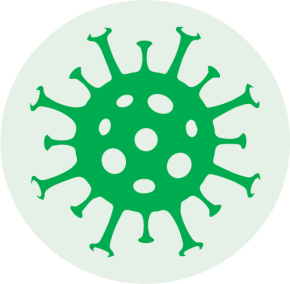

EDCTP portfolio: Emerging diseases
index


The RE-BCG-CoV-19 project is testing whether revaccination with BCG protects healthcare workers from infection with SARS-CoV-2 or reduces the severity of symptoms.
Testing BCG vaccination to prevent COVID-19

BCG is used in many countries to prevent TB infections in children. However, there is some evidence that BCG has more general stimulatory effects on the immune system and enhances protection against other infections.
Furthermore, preliminary analyses suggest that countries with routine BCG vaccine programmes have been less badly affected by COVID-19. However, the evidence is not yet strong enough for BCG to be recommended as a preventive intervention for COVID-19.
The challenge

The RE-BCG-CoV-19 project aims to determine whether BCG revaccination of front-line health workers in South Africa, who are at significant risk of acquiring SARS-CoV-2 infections, prevents infection or reduces the severity of symptoms.
The project is conducting a placebo-controlled trial (NCT04379336) involving at least 500 healthcare workers at clinical sites in South Africa. Participants will be followed up for a year, during which they will be regularly tested for SARS-CoV-2 infection, and their general health will also be monitored. Impacts on TB acquisition will also be assessed, as well as the effects of latent TB infections on COVID-19-related morbidity and mortality.
Regular interim data assessments will be undertaken, with data reviewed by an independent data safety and monitoring board. If early signs are detected that BCG revaccination is proving protective, it will therefore be possible to rapidly roll out vaccination more widely. The trial protocol is aligned with studies conducted in Europe and elsewhere to make it possible for later meta-analyses of pooled results.
Complementing this clinical study, the project team is also planning to use a novel ‘organoid’ model to explore the cascade of events following SARS-CoV-2 infection. Organoids are complex three-dimensional cellular assemblages that can be grown in culture and form structures resembling human lung tissue. As they include cells of the immune system, they can be used to track immune responses following SARS-CoV-2 infection of lung epithelial cells, which will help to identify responses associated with control of virus replication. The model will also provide a way to assess the impact of BCG vaccination on SARS-CoV-2 infection and viral replication, and shed light on the immune mechanisms underlying any protective effect.
The project

BCG has been used since the 1920s to protect against TB disease. It is safe, affordable and widely available. Therefore, if the RE-BCG-CoV-19 project identifies a protective effect, it could be rapidly introduced to mitigate the impact of COVID-19. RE-BCG-CoV-19 project data will complement other studies being carried out on BCG, contributing data specific to an African population. In addition, the laboratory studies will provide important insight into mechanisms of protection, to inform the development of other interventions.
Impact


“
test the safety and efficacy of this new formulation in young children
”
Bringing antiretroviral drugs to children

The CHAPAS trials have ensured that many more children with HIV have benefited
from life-saving antiretrovirals.
EDCTP portfolio: HIV & HIV-associated infections
The challenge
BCG is used in many countries to prevent TB infections in children. However, there is some evidence that BCG has more general stimulatory effects on the immune system and enhances protection against other infections.
Furthermore, preliminary analyses suggest that countries with routine BCG vaccine programmes have been less badly affected by COVID-19. However, the evidence is not yet strong enough for BCG to be recommended as a preventive intervention for COVID-19.

The RE-BCG-CoV-19 project aims to determine whether BCG revaccination of front-line health workers in South Africa, who are at significant risk of acquiring SARS-CoV-2 infections, prevents infection or reduces the severity of symptoms.
The project is conducting a placebo-controlled trial (NCT04379336) involving at least 500 healthcare workers at clinical sites in South Africa. Participants will be followed up for a year, during which they will be regularly tested for SARS-CoV-2 infection, and their general health will also be monitored. Impacts on TB acquisition will also be assessed, as well as the effects of latent TB infections on COVID-19-related morbidity and mortality.
Regular interim data assessments will be undertaken, with data reviewed by an independent data safety and monitoring board. If early signs are detected that BCG revaccination is proving protective, it will therefore be possible to rapidly roll out vaccination more widely. The trial protocol is aligned with studies conducted in Europe and elsewhere to make it possible for later meta-analyses of pooled results.
Complementing this clinical study, the project team is also planning to use a novel ‘organoid’ model to explore the cascade of events following SARS-CoV-2 infection. Organoids are complex three-dimensional cellular assemblages that can be grown in culture and form structures resembling human lung tissue. As they include cells of the immune system, they can be used to track immune responses following SARS-CoV-2 infection of lung epithelial cells, which will help to identify responses associated with control of virus replication. The model will also provide a way to assess the impact of BCG vaccination on SARS-CoV-2 infection and viral replication, and shed light on the immune mechanisms underlying any protective effect.
The project
The later CHAPAS-3 trial compared the efficacy and safety of three fixed-dose combinations including two without stavudine (found to have some long-term side effects in adults, leading to a recommendation that its use be discontinued in children). The trial the first of its kind in Africa studied nearly 500 children at four sites in two African countries.
BCG has been used since the 1920s to protect against TB disease. It is safe, affordable and widely available. Therefore, if the RE-BCG-CoV-19 project identifies a protective effect, it could be rapidly introduced to mitigate the impact of COVID-19. RE-BCG-CoV-19 project data will complement other studies being carried out on BCG, contributing data specific to an African population. In addition, the laboratory studies will provide important insight into mechanisms of protection, to inform the development of other interventions.
ratios forfixed-dose combinations and on appropriatedosage according to weight.
The CHAPAS-3 trial confirmed the effectiveness of fixed-dose combinations, providing further impetus to the rollout of antiretrovirals to children. Its evidence on abacavir informed the WHO recommendation of abacavir-containing combinations for first-line therapy in children. Trial data have also been used to support applications for regulatory approval for new scored efavirenz tablets.
Impact
L’homme RF et al. Nevirapine, stavudine and lamivudine pharmacokinetics in African children on paediatric fixed-dose combination tablets. AIDS. 2008;22(5):557–65.
Mulenga V et al. Abacavir, zidovudine, or stavudine as paediatric tablets for African HIVinfected children (CHAPAS-3): an open-label, parallel-group, randomised controlled trial. Lancet Infect Dis. 2016;16(2):169–79.
WHO. Guidelines on the use of antiretroviral drugs for treating and preventing HIV infection: recommendations for a public health approach. 2010.
WHO. Consolidated guidelines on the use of antiretroviral drugs
for treating and preventing
HIV infection: Recommendations for a public health approach
(second edition). 2016
Projects: Children with HIV in Africa Pharmacokinetics and Adherence of Simple Antiretroviral Regimens (CHAPAS): CHAPAS-1 and -3
Project lead: Professor Chifumbe Chintu, University Teaching Hospital, Zambia (CHAPAS-1); Dr Veronica Mulenga, University Teaching Hospital, Zambia (CHAPAS-3)
Target population(s): Children with HIV
Sample size: 71 (CHAPAS-1); 480 (CHAPAS-3)
Countries involved: Ireland, the Netherlands, the UK, the USA, Zambia (CHAPAS-1); Uganda, Zambia (CHAPAS-3)
Project duration: 2005–2009 (CHAPAS-1); 2010 –2011 (CHAPAS-3)
EDCTP funding: €1.2M (CHAPAS-1); €4.6M (CHAPAS-3)
Total project funding: €1.2M (CHAPAS-1); €5.0M